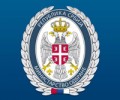First Sentences for Perjury in War Crimes Trials Rendered in Kosovo
On September 16, 2010 the Municipal Court in Peć/Pejë convicted Bekim, Engjell, and Prenk Luli of acts of perjury and sentenced them to suspended jail sentences of five months. In a separate trial, the court convicted Gjerg Luli and Kole Krasniqi of the same crimes. Kole Krasniqi is the only one whose jail sentence was not suspended and must be serevd.
The accused, Bekim, Engjell, Prenk, and Gjergj Luli, will not serve their sentences unless they commit a new criminal act in the period of the next two years. All of the accused gave false statements in the trial of Gjelosh Krasniqi, a member of the former Kosovo Liberation Army (KLA), who was sentenced before the Peć District Court because he was the leader of a group of KLA members who arrested Kosovo Albanian Pashto Luli on March 24, 1999 in the village of Doblibare/Doblibarë in Đakovica/Gjakovë Municipality and who has disappeared since.
HLC Kosovo believes that these sentences are too lenient. This was the first trial for perjury in war crimes trials and the court failed to render the maximum sentence of one year in jail, thus failing to provide proper satisfaction to the family of the missing, Pashko Luli. Further, through the lenient sentence the court failed to introduce a new practice of prosecuting witnesses who are unwilling to speak truthfully before court, as proscribed by law. One of the major problems in war crimes trials is the practice of having witnesses during main hearings under pressure or intimidation, changing their statements to the police or prosecution during investigations in which they had originally accused the defendants in such war crimes trials.
In the explanation of the sentence international judge Malcolm Sammons listed as mitigating circumstances the special circumstances under which the accused Gjerg Luli gave a false statement in the trial of Gjelosh Krasniqi. The accused Gjerg Luli, son of the missing Pashko Luli, claimed in several statements given to the police and investigators from the ICTY and from UNMIK that Gjelosh Krasniqi, along with a group of KLA members, took his father away from his brother’s backyard on March 24, 1999. The accused Gjergj Luli claims that he gave up this initial statement in order to save himself and his family from Gjelosh Krasniqi’s revenge. He denied in the main hearing that he knew Gjelosh Krasniqi before his father was taken away, claiming that the person sitting on the accused bench was not the one who introduced himself as Gjelosh Krasniqi on March 24, 2010. Even though the court stated that the suspended jail sentence is adequate for the gravity of the act committed and that the purpose of the punishment will be achieved, it is rather lenient considering the gravity of war crimes trials..
The accused Kolë Krasniqi was convicted for giving a false statement on March 31, 2009. He said in the trial of Gjelosh Krasniqi that he spent the night between March 24 and 25, 1999 with the accused Gjelosh Kraasniqi and other KLA soldiers in Pashko Krasniqi’s house in the village of Napolje/Napolë in the Peć/Pejë Municipality, where they celebrated the beginning of the NATO bombing. In fact, Gjelosh Krasniqi spent that night in the village of Dolibare/Doblibarë. The accused Kolë Krasniqi thus provided an alibi for the accused Gjelosh Krasniqi, noting that they are related and that he attempted to protect him.
The trial for perjury for these individuals began on July 14, 2010. During the trial, due to procedural issues, the trial was for these individuals was separated, allowing for separate judgments to be rendered.
HLC Kosovo had previously commended the judgment rendered by the Peć/Pejë Municipal Court on April 29, 2009, in which it based Gjelosh Krasniqi’s verdict in his conviction for war crimes on witness statements given in the pre-trial proceedings and on statements given by police investigators and interpreters who were present when these witness statements were taken. This earlier decision of the court was innovative in that it contradicted previously existing judicial practice in war crimes cases in which decision were based solely on witness statements given during the main hearing. By accepting witness statements from the pre-trial and investigative stages, this court was able to avoid potential witness intimidation.







